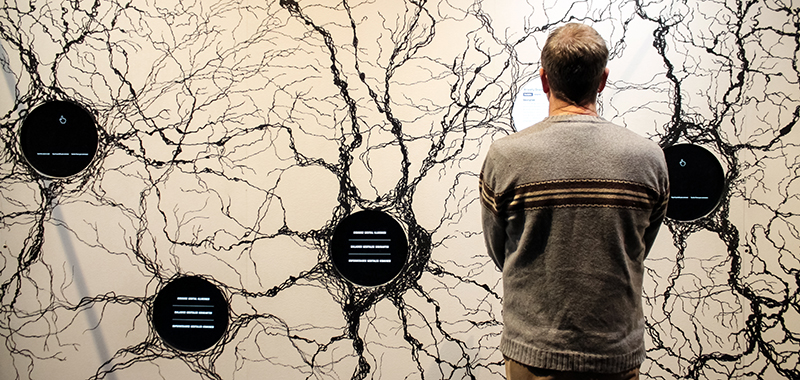#SCI50th: A safe space for relevant conversations
- Friday November 27, 2020
- 50th Anniversary
#SCI50th: As we celebrate 50 years of inspiration and impact at the Science Center of Iowa, we are sharing stories and memories of how SCI was established, grew and continues to serve the next generation. View the timeline and stories at www.sciowa.org/50th
"If we can bring science to the front of the conversation, that helps to better guide clarity and true knowledge."
The Science Center of Iowa prides itself on being a safe space.
Volunteers and staff have worked hard to build up a significant amount of trust, and it’s a place where people feel comfortable and welcome.
That’s why the science center is in a unique position to host relevant conversations on topics such as race and mental health.
"Having a place where individuals feel welcome to address these difficult conversations is really important," said Renee Harmon, the vice president of science learning. "We feel as though it is almost beholden to us that we make a commitment to our community to be that safe space, to engage in those tough conversations and bring people together who have different perspectives and be that open platform."
Another reason is because science and data can help destigmatize sensitive subjects.
"If we can bring science to the front of the conversation, that helps to better guide clarity and true knowledge and, hopefully, develop more informed advocates," said board member and president of Mid-Iowa Health Suzanne Minnick. "I think the science center is the ideal place to foster these types of conversations."
Minnick was a driving force behind setting up the Mental Health: Mind Matters exhibit at the science center in 2019.
The exhibit shined a light on mental illness and provided context to misinformation about mental illness and the gaps that have been left by science.
Harmon said her favorite thing about the exhibit was that people could anonymously write down their experience with mental health on note cards and then display them in the exhibit.
"There was nothing more powerful about that for me, personally, than to read people's notes who shared from their heart, shared their life experience and the message of hope," Harmon said. "We saw individuals that were writing things like, 'You can get through it.' People told their stories in a way that helped people connect and understand that they're not alone."
SCI also has hosted RACE: Are We So Different? twice in the last decade.
The exhibit focused on the science behind race. It dove into the history of the idea of race and how science shaped concepts of race and human variation.
"We looked at racism throughout our country and how it affects laws, our customs and even our schools," Harmon said. "It really dove into how people are different and the uniqueness of every individual. "
"But then, it celebrated those differences when it comes to identity when it comes to family background and even language, culture and customs," Harmon continued. "It also talked a lot about discrimination and oppression."
"When we’re making decisions about exhibits like this, we feel like it gives us the opportunity to provide the chance for our community to explore the tough conversations in a safe space," she said.

